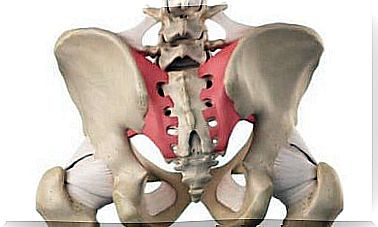Causes Of Bloating

Abdominal bloating is common. Its consequences are not usually serious, but they significantly affect the quality of life. In fact, more than half of those who suffer from it change their routine. What causes abdominal bloating?
When should bloating be a cause for concern? There are many interpretations of the severity of bloating. For some it is temporary and unimportant, and for others it is a daily complication. In the lines below, we will explain everything you need to know about bloating.
Prior knowledge of abdominal bloating
Abdominal bloating, abdominal distension or abdominal swelling are terms that are often used interchangeably. However, it does not mean the same thing.
Medicine distinguishes between bloating and distension. The first is the sensation that a person has, the subjective feeling. Abdominal distension is the objective perception of an increase in the size of the abdomen, which can be verified on physical examination.
We would also like to point out that this is not about obesity or the accumulation of fatty tissue. Abdominal bloating affects both overweight and weak people.
According to data published in 2013 in the Journal of Neurogastroenterology and Motility, researchers estimate that up to a third of the population has had or has had this symptom. The most affected are women, to a greater extent than men.
Causes of bloating
As Dr. Edith Pérez de Arce points out, the most common cause of bloating is overeating. It is a benign and temporary cause, without major complications.

Abdominal bloating is almost always a benign process. It lasts a few hours and disappears without the person in question having to do something specific. However, there are situations that hide a more serious process.
If bloating persists, you should take action. In benign cases, the discomfort should not last more than 24 hours. In life-threatening cases, bloating persists for a long time. Moreover, in chronic conditions (such as dyspepsia), an article published in 2014 by the Revista de Ciencias Médicas de Pinar del Río explains that 12 weeks is the limit.

These 12 weeks also apply to conditions such as celiac disease or malabsorption syndromes. Of course, these conditions are accompanied by diarrhea and major digestive changes. Gastroenteritis also has symptoms that go hand in hand with bloating. It can cause diarrhea, vomiting and even fever.
You should worry if there is intense pain. Doctors should rule out problems such as cirrhosis (late stage of liver scarring), neoplasm (abnormal mass or tumor in the tissue), clots and thrombi. In this sense, the history and the presence of risk factors can guide the professional in establishing a correct diagnosis.
How to reduce bloating
Go to the doctor regularly to monitor bloating
It is important to talk to a professional if you have questions about the causes and characteristics of bloating. In this sense, we do not recommend you to assume that it is something ordinary or normal.
If in doubt, because the symptom seems to last longer or is accompanied by other signs, make an appointment with your doctor. In the meantime, you can apply the dietary measures I have suggested to alleviate the discomfort.









